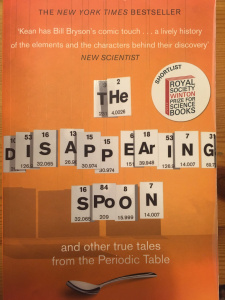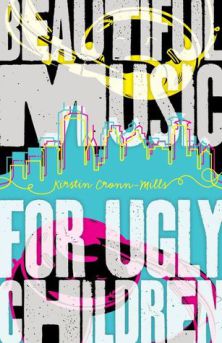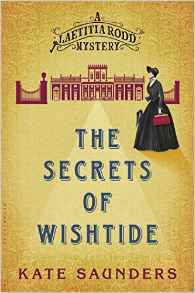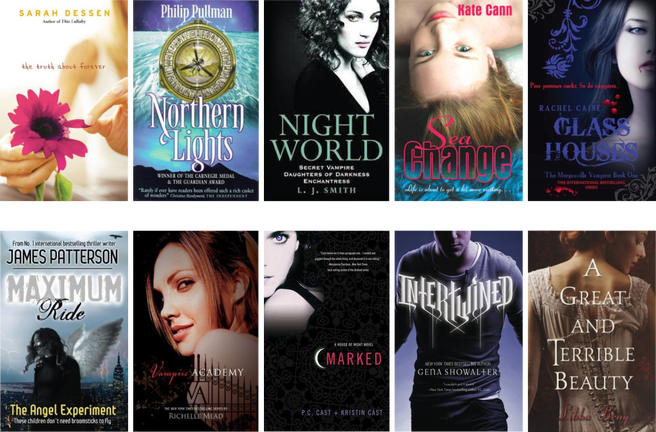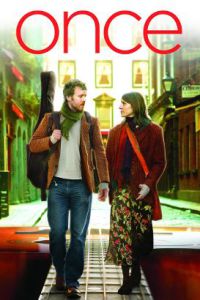
The Players…
Glen Hansard, Markéta Irglová, Bill Hodnett, Danuse Ktrestova and Geoff Minogue, with Gerry Hendrick, Alastair Foley and Hugh Welsh.
The Story…
It could’ve only been happenstance.
One day an Irish street musician meets a kind Czech ex-pat girl with an ear for music. She likes his songs, and a conversation is struck regarding her wish to be a musician herself. To play piano.
Our busker knows a few people and offers his hand as well as his company. She’s delighted by this chance, not to mention him being able to fix her busted vacuum.
Certain opportunities only come around…well, you know.
The Rant…
As a wordsmith, and maybe not unlike you everyday speakers of English, I have a short list of words I love to speak and hear. C’mon, you all must, too. Think about it. Sometimes you hear a word or a sentence that tickles you, be it a silly joke, a quote from a fave movie or just someone who knows how to turn a phrase. Be honest. George Carlin once said that everything we share but never talk about is funny. In that vein, conversation isn’t much different. This isn’t a thing we often share on an intimate level, but then again it’s kind of like divulging to a stranger the magic of chicken-fried steak.
That’s a phrase I like: chicken-fried steak. First heard of the dish back when I was a pup and got to reading the homespun philosophies of Robert Fulghum. You know, the All I Ever Need To Know I Learned In Kindergarten guy. He was the commencement speaker at my college graduation and was very keen in turning a phrase. Maybe more on that later.
Let’s get back to the smithy.
Yeah, so. Favorite words. Betcha you got a few yourselves. My list is kinda short so I won’t bore you. Long. I hope. Mine are merely terms that invite amongst fond memories, ideal ways to express my wants and needs, or just plain fun to say. Such terms or phrases as “lunch,” “under the aegis of,” “ostensibly,” “flash,” “stands to reason,” “libation,” and many more. But I said I’d keep it short. Could go on for days, under the aegis of free expression that blogging permits. Heh.
Here’s another choice word o’mine: busker. Learned what that curious term meant back in my high school salad days (another choice phrase. I’ll quit it soon) when I discovered the Beatles. Not a bad way to get literate, right?. I learned that in England, a “busker” is a street musician, trying to earn their bones as a legit artist. If not in some contract than with earnest singing and playing to a happy crowd. A few coppers in the guitar case doesn’t hurt neither. Heard that’s how John and Paul met George, his teenage self jamming in the street for the occasional schillings flipped into his case. So I’ve heard. I later found out things worked out well for the quiet George.
From the Fab Four I learned about the ur-busker, Lonnie Donegan, the skiffle king. For those out of the know, before the Beatles tackled the UK to the mat, skiffle was the pop music of the times. It was kind of a manic amalgam of punky folk paired with a strident delivery hell bent on speed and maximum volume. Skiffle was almost exclusively acoustic guitar driven and performed—where else?—in the streets. Such an unruly racket would never set foot on the stage at your local Brit dance hall. Down on the corner however? Talk to Sir Paul and the spirit of Lennon. Skiffle is how it started. Passersby tend to be a curious crowd.
However, the first time I heard “skiffle” (of a sort) from a “busker” (of sorts) was in college, well after the Beatles and Fulghum with his chicken-fried whatsit. It’s been mentioned here before I paid for cigarettes and barcrawling by way of playing barista at the local coffee house, a very hip job in the mid-90’s. Hell, I just liked coffee. And smokes. And coffee and smokes and beer in varying levels. I was yet another regular gadfly at the joint alternating between studying, getting wired and getting wired with friends over our studies well onto midnight. My regular status led me to having a job there. Just me getting reimbursed for the gallons of coffee I had consumed over many semesters, which was all right.
The cafe had an almost stereotypical boheme atmosphere. Patrons could not only pound down shots of espresso by the dekaliter, but also pore over Sartre that invited the inevitable philosophical arguments about bad faith and/or de Beauviour was his girlfriend or his rival. Or roll their own cigarettes and suck them down faster that Ginger Lynn on your local high school basketball team. Or again just essentially cram homework, wired out of your mind and maybe end up sitting shoulder to shoulder with the prof of the designated class who was just as wired as you were, dropping hints about key points in their next lecture. All that actually happened. Good times with insomnia.
All this and more, like letting the misfit cast of characters that actually served this circus molest the tape deck (remember, 90s) with all sorts of personal tastes of incongruent music, somewhere approaching acceptable to the wacky clientele’s ears or invite some kind of sonic trepanning. My sophomore year I was welcomed into the fold as a java jockey, and naturally I brought a small clutch of mixtapes to spice up the life into the lateness of the hour like my rogue’s gallery did. Our musical wanderings were seldom an issue (save the time a few of our Middle Eastern residents chafed at the Cure’s “Killing An Arab” came over the speakers. In hindsight, understandable).
The lot of them were mostly too into their cups of joe and Being And Nothingness to care, unless something came over the house speakers that busted up their reverie. Though the Cure’s squeaky meditation on what Camus was getting at with l’Etranger my choice of noise was The Style Council’s Cafe Blue album. The title alone made it seem relevant to our little hidey-hole. Nope. I soon learned that here was a place to cut one’s teeth on experiencing new music reflected by an audience, reactions good and not. Wasn’t exactly busking. More like Jack Black’s histrionics in High Fidelity. No wonder folks could get twitchy at times. Refill?
We were a quiet rowdy lot, us latte slingers. Always jacking tapes in with bands that meant something unique to us (and us only), tweaking the volume to barely above annoying and engaged in an embryonic version of file-sharing. I figured I had questionable tastes, more jagged than eclectic (I was the usually that got told to turn it down. Often). At the time I was big into old school UK punk and a lot of 80s indie rockers (eg: The Replacements, Hüsker Dü, early REM, etc) and the guests knew I was on duty before they came inside thanks to the speaker on the patio. I can almost hear the groans and rolling of the eyes.
So yeah, the cafe was kind of a jukebox. Like when you frequent your local watering hole; you immediately knew who was on the job courtesy of the sound system. An old bartender of recent was a Led Zep freak, so when I had a hankering a cold draft and stepped over the threshold to hear “Going To California” slipping from the speakers I knew I could safely expect a frosty pint waiting at my usual seat. I was often correct.
As correct as it was back in that coffee bar. You knew what you were in for before you were even inside, us buskers by proxy. My law student buddy loved ska and funk, so either The Toasters or Thievery Corporation were on heavy rotation. The very feminist but never admitting to it played a lot of Ani DiFranco (no surprise there). Another guy preferred odd, Eno-esque soundscapes. Threw Style Council to the floor, I tell ya. You almost never knew what you were gonna get, but not really.
Then there was the one girl, Rachel. I think that was her name. Surly, well built, whip-smart and quick with an eye roll. She was diminutive, which would explain the patent leather stack boots she always wore. That gave her presence, which may have been the point. That might’ve also explained why she dragged in her tapes of random eclecticism to punish the customers. Her soundtrack definitely said, “I’m here.”
I dug her sh*t. It was often a revelation. Me being the restless audiophile I took in what I’d take in. Rachel and I would often share shifts, and her being as cuddly as a cobra I let her run riot with the stereo. Didn’t want to f*ck up her chi. My patience was how I got exposed to the then-darling emo band Texas Is The Reason, debated the contributions of trip-hop folkie Beth Orton to some of the Chemical Brothers’ albums, and get razzed by my retro tastes. I never thought the Police were that retro.
Oh, and Rachel turned me onto Billy Bragg, the last busker that made good. Especially him.
I wandered in one night with Rachel womaning the register with her usual oddball selections winding around the capstans, warbling over the nightly, dutiful students, what with their tiny, empty cups of espresso and the pulling of the hair. What was with the pulling? Rachel’s selection. A f*cked up Cockney voice that wobbled like mid-60s Dylan with a shrill righteousness accompanied only by a poorly tuned electric guitar. That was it and that was all. The song that grabbed me was called “A New England.” She was playing it at 11. I looked around and was intrigued. That broken, strident guitar sound pulled me in. The pained, earnest voice grabbed me. Who was this guy?
“Billy Bragg,” Rachel said plaintively. You dolt.
I didn’t really know what a busker was back then. Now it’s a favourite word.
Bragg either created or at least spearheaded the “anti-folk” sub-genre of protest music for the 80s. Based on the UK punk aesthetic translated to the socially ineffectual Thatcher administration, what with its indifference to the plight of the workaday sub-middle class, Bragg picked up his axe and assumed the role to Britain what Dylan did for America 20 years prior. Namely, using finger-pointin’ music to scream the emperor is naked and the empire crumbling. Hell to the yeah.
Rachel’s selection got my ears a-twitching. 20 years on, I have all of Bragg’s albums. Why? Not because of what the man was singing, yearning. That was what he was, earnest. Still earnest, singing loud and proud. What else is a busker? On the streets, screaming what needs to be sung. Rachel’s playlist made me an instant acolyte, so I hit the Web and did my research. Hence George’s history, underage at the time to hook up with the Quarrymen, but they waited. Further down the rabbit hole was Lonnie, rapping in the back alleys of London informing John and Paul where to get. Aeons later to me with Billy and his pointed tones of demanding social change. I was a Dylan fan all along, so it wasn’t much of a leap.
That choice word: busker. A street musician, earning his keep by the kindness of often indifferent strangers. A few coppers to passively shut him up only to let his music get louder, hoping beyond hope that someone will listen.
Sometimes someone does. I mean, I did…
On a nowhere street in Dublin a going nowhere busker (Hansard) plays out his passion on his beater guitar, screaming the popular favourites. That’s during the day (while he shirks his lame job). Later in the evening he drops the popular favorites and barrages the neighbourhood with some intense originals, big enough to heal the lame and the halt.
His sundown singing attracts the attention of a meek florist (Irglová). She likes his singing and playing, and has been listening for a while. He’s flattered, not to mention attracted to this random girl’s attention. Of course it’s not all knits and gnats. Turns out this girl has been suffering the nuisance of a busted vacuum cleaner. Good thing the busker’s day job is working in his dad’s (Hodnett) vacuum repair shop, as well as living in his attic. Suffering for art and all.
Their chance encounter informs our guy that she’s a pianist, amateur not unlike him. Another music enthusiast. With his meager “connections,” our man takes her to his favourite music store, where they get to duet together on the baby grand for her and his beater guitar for him. A friendship is struck and she encourages him to quit the streets and find a studio.
He’s reluctant. It’s one thing to be playing anonymous in a crowd. A single? That precludes recording songs for strangers. No immediate audience to inspire him. She says that’s all rot; he’s talented, and deserves an opportunity to widen his audience, get his music out there.
But that would entail him making the leap over to London, leaving his nest. It’s scary, but if he wants to follow his muse Dublin doesn’t seem the place to be.
Especially not its street corners…
Oh yeah. The chicken-fried steak thing.
Never heard of the dish before Fulghum (and have yet to find place that serves it. Not enough truck stops around where I’m from, I guess). He tells of his wanderings for the ultimate chicken-friend steak experience, bouncing from tiny burg to hidey hole in the Pacific Northwest in search of his quarry. The way the man told it, the dish consists of taking “a piece of stringy beef, pound hell out of it with a kitchen sledge, dip it in egg and flour, and drop it in a frying pan.” The rest is mystery, with something involving peas, mashed potatoes and serious gravy along the way. Sounded good to me, at least how he told it.
I heard wrong. My chicken-fried steak experience imploded in my own kitchen. Stringy was right, like chewing on an inflatable wading pool in your backyard. The flour didn’t help any and I don’t care for peas. For me as a chef, chicken-fried steak was akin to prepping fresh leftovers. It was rather a disappointment based against Fulghum’s epiphany. Sorry, Bob. Can’t believe all you read.
Still, I did take a shine to the dish’s simplicity. Nowadays, with Ramsey and Irvine smearing the overdramatic cooking show feces all over the map, coaxing gourmet from a can of baked beans and much theatrical profanity (not Irvine) is a pipe dream. Lousy beef is lousy beef. But the “simple pleasure” factor cannot be ignored. Not unlike watching Once. Twice rather.
I’ve endured the headache before of giving the week’s slab a second viewing. It was based among “not getting something,” “did I miss something?” or just plain falling asleep. I watched Once twice based on the second precept. The next time around was a chicken-friend steak matter. Once was such a simple (and quite appealing) movie I also viewed it twice under the impression of the first precept. Nope. Not much there, and that’s what made Once so enjoyable.
I recall back in ’07 this movie getting a lot of hype; critical praise of a certain urgency that implored folks to check it out. The box office returns said otherwise. The soundtrack sold well enough, but the ticket taker kinda limped. Granted Once was a more-or-less indie film, but so was Birdman and it won the Oscar. Did Once have limited release? Sure, but so did Birdman and you know. That’s along the lines of why RIORI visited Once.
Once was refreshing. It was so simple. Girl meets guy, both love music, girl encourages guy to pursue his dream and helps her realize hers. That’s it. Simple. Uncomplicated. Besides the prerequisite dramatic tensions (mild here), it was kinda hard to f*ck up the movie’s premise. Director Carney also wrote the script, and went on record saying that Once was basically an extended music video. Easy to see. Once—pardon the pun—played out like an album, punctuated by tracks and illuminated by scenes alluding to music (eg: burnt CDs, our girl longing for a piano, our guy’s collage of concert posters on his bedroom walls, etc). It’s an unconventional musical. It is like a very long and involved music video, down to the piercing camera work and lighting. As far as an execution of dramatic music vid goes the spirit of Jacko would’ve been proud. He-hee.
So yeah, simple. Let me tell ya, after alternating between watching gee-whiz-bucky-gizmo action numbers, questionable comedies and staggering dramas here at RIORI, watching a simple film like Once was a cinematic colonic. I watched it twice not just because I liked it (and I did), but quizzically, as if I missed something. Again, I didn’t. Once was clean, clear and pleasant. Like the ideal cup of coffee. A rare pleasure.
Once gives the outward impression of a romantic comedy a-brewin’, huh? It quickly flicks the plectrum and says no. Sure, it’s a girl-meets-guy premise but it deftly diverts that conceit. Glen and Markéta (and I’m gonna use their real names from now on. Despite their characters have no names barring “guy” and “girl,” saying so gets confusing since there are multiple guys and girls in this movie) play a muted version of footsie, but the idea of romance between them are dashed in the first act. Once is ultimately a buddy movie, not unlike Driving Miss Daisy: two lonely folks meet each other, find common ground and bond. That’s all. Simple.
Once is sweet, but not cloying. It’s derivative, but saved by some uncanny acting as well as its flow, the cruel mistress pacing. It invites all the contrivances of a rom-com and dodges all of them. It’s a music video, right? So the jamming is the sweet spot. The movie is all about how a love of music can both define us as well as well as free us. Glen’s dumpy job may pay for fresh guitar strings, but that’s all it’s about. The film illustrates the aforementioned Billy Bragg experience: exposure to a life, and also akin to grumpy Rachel’s lesson, Once is all about revelation. Slow blooming and awareness of personal expression. Simple, but heavy. I mean, you remember that moment when a song moved you? Right. The Once.
There’s a lot of keen, thoughtful camera work here, also not unlike a music video. It’s all about angles to trap your attention. Admittedly, the movie is low key, but when it’s time to jam the film snaps to life, demanding your attention. It’s a creeping thing, subtle. The movie is framed by the songs, and running the risk of sounding too hoity-toity, not unlike Shakespearean soliloquies. Our characters respond and introduce the musical numbers with a lot of existential chatter about family and future/past potential prospects. It’s as if to codify this conceit the single takes and tracking shots only occur when any singing/playing is involved, like when Markéta accepts Glen’s gift of a beater Discman and burnt CDs of his originals. It’s a long walk home (cut), but she doesn’t seem to mind the cold. Think we’ve all been there once. Let’s hope so.
I betrayed my own sensibilities by watching Once more than, well, once. You really do have to “watch” this movie. That might’ve led to its undoing. I recall back in ’07 a lot of that hype surrounding Once. John Carney coming into his own as a director. Glen as the leader of the beloved Irish folk-rock band the Frames making his big screen debut. I even promoted the film when I was an on-air radio programmer, as well as seeing the TV spots about this delightful movie that should demand your attention. All of which demands examination of our fresh-faced primaries acting. C’mon, I said Once is at its core a buddy movie. Admittedly (and this might be my only solid gripe here) Once‘s plot is still derivative. You can see where it’s going an AU away. Of course it ends well. Or course Glen and Markéta connect. Of course Glen pursues his dream. All of that is saved by some uncanny acting, as well as flow, that anti-muse pacing. Yeah, her again. And always.
It’s a saving grace that our novice thespians hold together so well. Truth be told, neither of the leads are serious actors. Or real actors, for that matter. Glen’s a musician, no film cred. Marketa’s CV consists of three films (including this one), and listed as only “participant,” whatever that means (a few dollars above an “extra” perhaps?). Regardless of their acting experience, the two work very well with awkward chemistry. Their “all thumbs” approach makes the trite premise endearing. As the instance Glen is a shy, dorky guy, but only when not singing and punishing his guitar. Marketa seems meek, offering an impression that a language barrier equals some naiveté. She’s a lot sharper than Glen in life, love and leaving that she leads on. So wrong-o on both counts.
Carney’s script (did I mention he wrote the thing?) allows our leads to just be themselves. Carney was the compass, clunky Glen and Marketa were true north. And it worked. Music enthusiasts them, and of all stripes, know what a good tune can do to smooth out the edges. Consider your fave bar discussion with a stranger: Who’s better? Beatles vs Stones? You’re both right. Good music is good music. Now go and molest the jukebox. Or if you have the time head over to your local music shop and f*ck around. We could all do worse with such drunken fun. Glen and Marketa are us at a bar, talking tunes and eventually decimating our TouchTunes accounts. Like I said, we could do far worse.
Even though I”ve been describing Once as homespun, it did have its cinematic moments of revelation. There is a thin thread of tension—friendly tension—running throughout the movie. Anticipation, rather. Again, Once is not a rom-com; any concept of that—need I remind you—is tossed into the curb by the end of the first act. It’s really all about will Glen become a successful songwriter with a contract, and will Marketa get her very own piano that she had to abandon in her family’s flight from the Czech Republic? That’s what matters here. Those are the stakes. We don’t care if they shack up, nor should we. For me I sat squirming throughout the final act, and my bladder was empty. I checked. I saw canny casting, careful tension and smooth pacing. All from some relative journeyman (and woman) came a fumbling, simply enjoyable flick. We cinephiles all desperately need that time and again.
Alas, in the endgame, nothing worked. Once crashed and burned at the multiplex. As I said, the soundtrack did well enough, but Once was no Birdman. Probably for the better. Once‘s type of earnestness is often lost on Americans’ barely there attention span. I’m guilty of that too, again hence to double watching. Sometimes what you see is supposed to be what you get. No need to jam that cold pizza slice into the microwave. Just chew.
This installment ain’t trying to be some crusade. Take it or leave it is the spiritual guide here at RIORI. That’s kind of a truism. Sometimes, however, there is a bleed. When a quality flick rolls around that flips the bird at The Standard I gotta say something. So what I’m saying is thus: you want a cinema detox? Watch Once. It quietly defies your sensibilities. It’s not a rom-com. It’s not a drama. It ain’t really that funny. It’s a buddy movie, with a cool soundtrack. It’s a series of vignettes broadcasted as an old skool MTV block of pop hits. It defies categorization. It is delightfully troubling chicken-fried steak busking. I’m talking serious gravy overflow.
It’s all cool.
The Verdict..
Rent it or relent it? Rent it. Need a break from it all? Once is the movie for you. For all of us really. Michael Bay can wait. And wait. And wait some more. We’ll still have tiiiiimeee.
Stray Observations…
- “I bring my Hoover!” That thing a pet or something? If that’s it we should name it “Maguffin.”
- Holy sh*t. I was once in that music store. No, really, on a trip to Dublin. Lots and lots of guitars.
- “I’ll pay ya back.”
- Like the slippers.
- “That’s the first thing I got sorted out.”
- And the lesson scene, in that store? All those electric guitars hanging on the wall, and the pair defiantly acoustic. Hmm.
- “Now play it again.”
- Okay. So the song didn’t flounder.
- “Cool, cool…”
Next Installment…
We got a picture about some Matchstick Men scheming against the status quo.
I regret nothing.
Advertisements Share this: